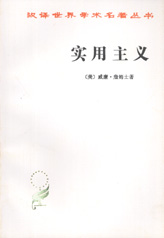牛津实用英语语法-第64章
按键盘上方向键 ← 或 → 可快速上下翻页,按键盘上的 Enter 键可回到本书目录页,按键盘上方向键 ↑ 可回到本页顶部!
————未阅读完?加入书签已便下次继续阅读!
He said‘Where is the station?’
他说:“车站在哪里?”相当于:
He asked where the station was.
他问车站在什么地方。
ask,inquire,wonder也可用在直接引语中,但这时通常位于句尾:
‘Where is the station?’he inquired.
“车站在什么地方?”他问道。
C ask之后可以接说话的对方(间接宾语):
He asked,‘What have you got in your bag?’
他说:“你的包里装的是什么?”相当于:
He asked(me) what I had got in my bag.
他问(我)我的包里装的是什么。
但在inquire,wonder,want to know之后不能有间接宾语。因此,如想要转述提及说话对方的问句时就必须用ask:
He said,‘Mary,when is the next train?’
他说:“玛丽,下一班火车是几点的?”
He asked Mary when the next train was.
他问玛丽下一班火车是几点的。
如果我们用inquire,wonder或want to know,就必须省去间接宾语Mary。
D 如果直接问句是由(when,where,who,how,why等)疑问词开头的,则必须在间接引语中重复这些疑问词:
He said,‘Why didn′t you put on the brake?’
他说:“你怎么没刹车呢?”相当于:
He asked(her)why she hadn′t put on the brake.
他问(她)怎么没刹车。
She said,‘What do you want?’
她说:“你们想要什么?”相当于:
She asked(them)what they wanted.
她问他们想要什么。
E 如果没有疑问词,则必须用if或whether:
‘Is anyone there?’he asked.
他问道:“那儿有人吗?”相当于:
He asked if/whether anyone was there.
他问那儿是否有人。
1 通常这两个词都可以用,但if要比whether更普遍些:
‘Do you know Bill?’he said.
他说:“你认识比尔吗?”相当于:
He asked if/whether I knew Bill.
他问我是否认识比尔。
‘Did you see the accident?’the policeman asked.
警察问:“你看到那起事故了吗?”相当于:
The policeman asked if/whether I had seen the accident.
警察问我是否看到那起事故了。
2 whether可用于强调对某事必须做出选择:
‘Do you want to go by air or sea?’the travel agent asked.
旅游商问:“你想乘飞机走,还是想乘船走?”相当于:
The travel agent asked whether I wanted to go by air or by sea.
旅游商问我是想乘飞机走,还是想乘船走。
请注意whether or not的用法:
‘Do you want to insure your luggage or not?’he asked.
他问:“你的行李要保险吗?”相当于:
He asked whether or not I wanted to insure my luggage./He asked if I wanted to insure my luggage or not.
他问我是否要给行李保险。
3 whether+不定式结构可位于wonder,want to know之后:
‘Shall/Should I wait for them or go on?’he wondered.
他问自己:“我是等等他们呢还是继续往前走呢?”相当于:
He wondered whether to wait for them or go on./He wondered whether
he should wait for them or go on.
他问自己是要等等他们还是继续往前走。
inquire+whether+不定式结构是可以的,但不常见。
(关于whether+不定式,另参见第242节B。)
4 如果问句含有条件从句时,用whether就比较清楚,否则就会出现两个if:
‘If you get the job will you move to York?’Bill asked.
比尔问:“如果你得到那份工作,你会迁到约克去吗?”相当于:
Bill asked whether,if I got the job,I′d move to York.
比尔问如果我得到那份工作我是否会迁到约克去。
?
'Amber demo'
318 以shall I/we?开头的问句变为间接引语
?
以shall I/we?开头的问句有四种类型:
A 对未来事件的推测或查询:
‘Shall I ever see them again?he wondered.
他问自己:“我还能再见到他们吗?”
‘When shall I know the result of the test?’she asked.
她问:“我什么时候才能知道考试的结果?”
这种句子适用shall/will的一般规则。表示猜测时,通常由wonder引导句子:
He wondered if he would ever see them again.
他心里想他是否还能再见到他们。
She asked when she would know the result of the test.
她问什么时候她才能知道考试的结果。
B请求指示或征求意见:
‘What shall I do with it?’
“我拿它怎么办呢?”相当于:
‘Tell me what to do with it.
“告诉我该拿它怎么办。”
在间接引语中这种请求可以用ask,inquire等动词加should 结构或be+不定式结构表达。对征求意见的转述一般用should:
‘Shall we post it,sir?’he said.
他说:“先生,要不要把这东西寄了?”相当于:
He asked the customer if they were to post/if they should post it.
他问顾客是否要把这东西寄了。
‘what whall I say,mother?’she said.
她说:“妈妈,我该说点什么呢?”相当于:
She asked her mother what she should say.
她问母亲她该说点什么。(征求意见)
当需要就某事做出选择时,在间接引语中一般用whether,有时也可用whether+不定式(参见第317节E):
‘Shall I lock the car or leave it unlocked?’he said.
他说:“我该把汽车锁上呢,还是不锁?”相当于:
He asked whether he should/was to lock the car or leave it unlocked./He asked whether to lock the car。。。
他问是否该把汽车锁上,还是不用锁。
C主动提出为对方做一件事或提供某物:
‘Shall I bring you some tea?’
“我给你端点儿茶来好吗?”
可转述为:
He offered to bring me some tea.
他主动要给我端茶来。
请注意‘Would you like me to bring you some tea?’(“要不要我给你端点儿茶来?”)和‘I’ll bring you some tea if you like’(“如果你愿意的话,我给你端点儿茶来”)这两个句子也可用offer 来转述。
D提出建议:
‘Shall we meet at the theatre?’
“我们在剧院见面好吗?”
可转述为:
He suggested meeting at the theatre.
他建议在剧院见面。
?
'Amber demo'
319以 will you?/would you?/could you?
开头的问句
?
这些问句可能是一般问句,但也可能表示请求、邀请。偶然也可表示命令(参见第284节、第286节与第320节):
He said,‘Will you be there tomorrow?’
他说:“你明天在那里吗?”(一般问句)相当于:
He asked if she would be there the next day.
他问她第二天是否在那里。
‘Will you stand still!’he shouted.
他大喊:“站住,别动行不行!”相当于:
He shouted at me to stand still./He told/ordered me to stand still.
他对我大喊,要我别动。/他要/命令我站着别动。
‘Would you like to live in New York?’he asked.
他说:“你愿意住在纽约吗?”相当于:
He asked if I would like to live in New York.
他问我是否愿意住在纽约。
‘Will/Would you file these letters,please?’he said.
他说:“请把这些信件存档好吗?”相当于:
He asked/told me to file the letters.
他让/告诉我把这些信件存档。
‘Would you like a lift?’said Ann.
安说:“你想搭便车吗?”相当于:
Ann offered me a lift.
安邀请我搭便车。
‘Would you like to e round/Could you e round for a drink?’he said.
他说:“到我家来喝点酒好吗?”相当于:
He invited me(to e)round for a drink.
他邀请我去他家喝点酒。
‘Could you live on£25 a week?’he asked
他问:“一星期25英镑你够维持生活吗?”相当于:
He asked if I could live on £25 a week.
他问我一星期25英镑是否够维持生活。
‘Could/Would you give me a hand?’she said.
她说:“请帮我一下好吗?”相当于:
She asked us to give her a hand.
她请我们帮她一下。
‘Could/Would you show me the photos?’she said.
她说:“你能给我看看照片吗?”相当于:
She asked me to show her the photos./She asked to see the photos.
她问我能否给她看看照片。
(关于can/could/may/might+I/we?参见第283节。关于征求意见参见第131节。)
?
'Amber demo'
320间接引语中的命令、请求、劝告
?
直接命令:
He said,‘Lie down,Tom.’
他说:“躺下,汤姆。”
间接命令:
He told Tom to lie down.
他叫汤姆躺下。
间接命令、请求及劝告通常由表示命令、请求、劝告的动词+ 宾语+不定式(=宾语+不定式结构)来表示。
A 可用下列动词:advise,ask,beg,mand,encourage,en- treat,forbid,implore,invite,order,remend,remind,re- quest, tell, urge,warn。
(注意: say不包括在这些动词中,关于用say转述的间接命令/请求,参见第321节。)
He said,‘ Get your coat,Tom!’
他说:“汤姆,去穿你的外衣!”相当于:
He told Tom to get his coat.
他叫汤姆去穿外衣。
‘You had better hurry,Bill!’she said.
她说:“比尔,你最好快点!”相当于:
She advised Bill to hurry.
她劝比尔快点。
B 否定意义的命令、请求等通常用not+不定式转述:
‘Don’t swim out too far,boys,’I said.
我说:“孩子们,不要游出太远。”相当于:
I warned/told the boys not to swim out too far.
我警告孩子们,叫他们不要游出太远。
forbid也可用来表示禁止,但多用于被动语态,不太用于主动语态。
C上面所示动词要求加宾语+不定式,即它们后面必须直接跟说话的对方,不带介词。(另参见第89节。)在直接命令、请求等中常不提及说话的对方:
He said,‘Go away!’
他说:“走开!”
当转述这样的命令或请求时,必须加上名词或代词:
He told me/him/her/us/them/the children to go away.
他叫我/他/她/我们/他们/孩子们走开。
ask与上述A所示的动词有点差别,ask的后面也可直接跟某些动词(如 see, speak to, talk to)的带 to的不定式:
He said,‘Could I see Tom,please?’
他说:“我可以见汤姆吗?”相当于:
He asked to see Tom.
他要求见汤姆。(参见第283节。)
但这和ask+宾语+不定式类型的请求有很大不同。
ask和beg后面都可以跟不定式的被动式:
‘Do,please,send me to a warm climate,’ he asked/begged.
他要求/请求道:“请务必将我送到气候暖和的地方去。”相当于:
e asked/begged us to send him to a warm climate.
他要求/请求我们将他送到气候暖和的地方去。
He asked/begged to be sent to a warm climate.
他要求/请求把他送到气候暖和的地方去。
D表示间接命令、请求及劝告的例句
注意:直接命令通常用祈使句表示,但要求和忠告可用多种方法来表示(参见第283节至第287节):
‘If I were you,I’d stop taking tranquillizers,’I said.
我说:“如果我是你,我就停止眼用镇静药。”相当于:
I advised him to stop taking tranquillizers.
我劝他停止服用镇静药。(参见第311节D。)
‘Why don’t you take off your coat?’he said.
他说:“为什么不脱下你的大衣?”相当于:
He advised me to take off my coat.
他建议我脱下大衣。(参见第287节。)
‘Would/Could you show me your passport,please?’he said.
他说:“请出示您的护照。”相当于:
He asked me to show





